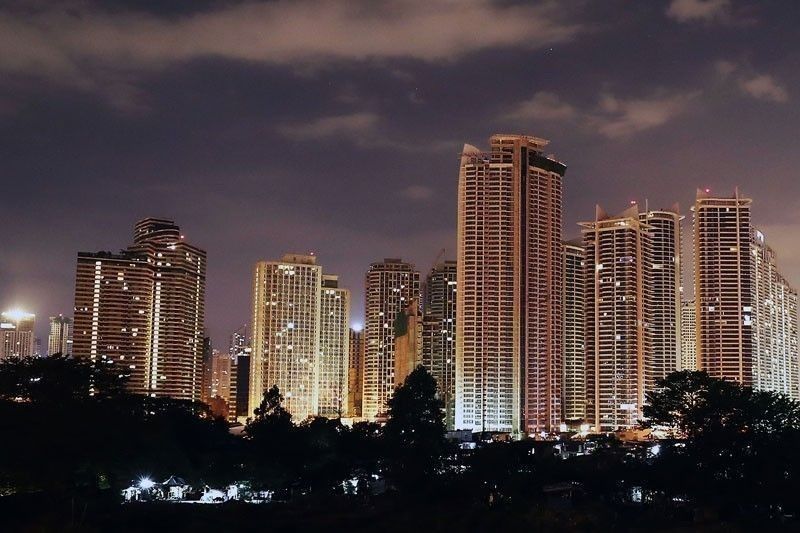Impediments to better economic performance


Lately, signs that the economic expectations concerning economic growth for the coming year would be below what the government has originally announced.
Growth is likely to be below the target of 6.5 percent. Recent forecasts issued by major international agencies about economic performance is at least one percent below what the government has been expecting.
Global pressures on expectations. Lately, the global pressures for weaker economic growth have been stronger. Post-pandemic problems for many countries have not eased and the outbreak of wars have been strong, exacerbating fears of poorer global economic performance.
Moreover, one of the most persistent engines of economic growth of recent decades – China – has been faltering with its own economic performance. Efforts to stimulate its own growth have not met with success on their part.
We have a high trade with China and this certainly is a downward pressure on our market performance.
Rising interest rates – initiated by measures in the United States – have also been a factor for reducing economic targets in many economies. The result is that development projects already initiated are slowing down project implementation. We have many major development projects that face this cost issue.
Let me relate this problem to other issues I have written on often. In particular, I relate the topic to the issue of attracting foreign direct investments, a topic of great relevance to us.
Foreign investment promotion and policies. FDI attraction is highly connected to this general topic of economic performance.
During times of general economic difficulty, it is possible that FDIs themselves could be hard to attract because many of them could be subjected by the same negative factors that affect us.
Yet some of them – in fact, many foreign investors in different countries – are also responding to different issues or situations. Since, by definition, foreign firms are located in other countries where they do their business, they are subject to different economic conditions.
For that reason these firms could be experiencing different economic cycles. Some are on an expansion mode, others are in steady and satisfactory business operation, and still others in decline.
In fact, some of them could be in search of new investment locations for one reason or other. The issue of rising interest rates could be less of an important issue to them compared to that of finding a better country to relocate their manufacturing plant.
We only have to remember that in the last decade, one of the important issues facing many foreign companies located in China were in search of new country locations; international trade disruptions had made their location in China untenable because of changed trade relations with the United States.
As I have stressed in early columns last year, the Philippine government has benefited from the major economic reforms passed under the previous administration to attract more foreign investments.
Foremost among these were the three reforms that improved the country’s policies on FDI). Important, too, were those pertaining to investment and tax incentives. Those have been useful in stimulating a change in perceptions about the country.
It is also important to note that the first year and a half of President Marcos’s term to increase more FDIs into the country has met with improving perceptions that the country welcomes FDIs. His state visits as new president and other foreign trips became occasions for foreign investment promotion.
Encouraging outcomes in new foreign investments in renewable energy projects have been happening. Also, some expansions of investments in export processing zones have been announced.
But we continue to lag behind the record number of new FDI inflows to our dynamic co-ASEAN members in the last two years. Indonesia, Vietnam, Thailand and Malaysia have done so much better in new projects, especially attracting foreign investments that were relocating out of China.
Our numbers in FDI performance might be rising. But these ASEAN countries have been improving their own performance even more than us in inviting FDIs. Moreover, their situations had never been hampered by legal issues similar to the constitutional economic restrictions that uniquely limits our flexibility in investment promotion.
“Restrictive” economic provisions once again. Precious time was lost when the move in Congress last year to amend the restrictive economic provisions directly through constitutional amendment did not move forward. The president did not support the effort by saying that such a move was not in his priority legislation.
It has been my belief that explicitly removing those restrictive provisions from the constitution would give us the required flexibilities to improve our incentives in attracting FDIs. Such a move would lead to greater attraction of foreign investments than investment promotion efforts that do not correct the frailties of our policies.
The reasons for the inaction on more direct constitutional amendment of the restrictive provisions are many. It is believed that the issue is too politically divisive within the nation. Others feel that the recent amendments were sufficient to clarify investment policies and can attract a good size of FDIs.
Still others suggest that such amendments accompanied by the aggressive presidential efforts at promoting FDIs would be able to improve overall FDI performance.
I believe that such arguments are second-best to a bolder effort to open the economy toward greater competition. Philippine foreign investment policies would be more credible if they are on relatively attractive footing compared with the available competition.
If only we had undertaken earnest reforms in FDI policies, we would have been much more effective in attracting new investments even when the economic situation is not as propitious.
For archives of previous Crossroads essays, go to: https://www.philstar.com/authors/1336383/gerardo-p-sicat. Visit this site for more information, feedback and commentary: http://econ.upd.edu.ph/gpsicat/
- Latest
- Trending





























